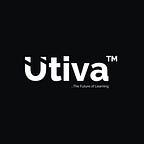Brookings Report: Workforce and Skills Training Constraints in Sub-Saharan
This is the revised version of the Brookings Report on the Future of Work. And this piece is written from the Utiva lens of work as a summary, aimed to provide an insight into the observed trend of the weak correlation between the service delivery and skill set of individuals who undergo Technical Vocational education training, with skills required by organizations across Sub- Saharan Africa.
It has been noted that there is a need for policies as well as changes that better align the Higher Education institutions with the actual capabilities needed in the marketplace as a driving force for the projected growth for Africa. This gap has resulted in a huge mistrust from the job market because organizations can not directly rely on the human capital that directly comes from the higher institutions.
The report highlighted that many firms in several countries find it increasingly difficult to find skilled talent that meet their business needs, despite several individuals being graduates of the TVET programs.
Firms in countries like Kenya, Mauritius, Rwanda, etc., indicated that a lack of skilled personnel is a major factor leading to slower growth and business expansion. This is as a result of a disconnect between the training institutions and the labor market. The report also showed that there seemed to be little benefit or difference between those who pursued the TVET training as against those who did not pursue any further education after high school.
The solution proffered by this report can be summarized as
- Creation of policies that enable higher institutions/post-secondary schools institutions produce a more skilled labor force that meets the demands of the labor market.
- Structure TVET programs to address current market-place needs/challenges. These include but are not restricted to market-driven TVET programs, on-the-job trainings, entrepreneurship, and corporate skills.
- Ranking as important the retraining of youths and adults who are already in the labor market with these labor market bespoke skills
- Creation of a skills program that aligns with the demands from the labor market. Such programs are but not restricted to market-driven TVET programs, on-the-job trainings, and entrepreneurship support
